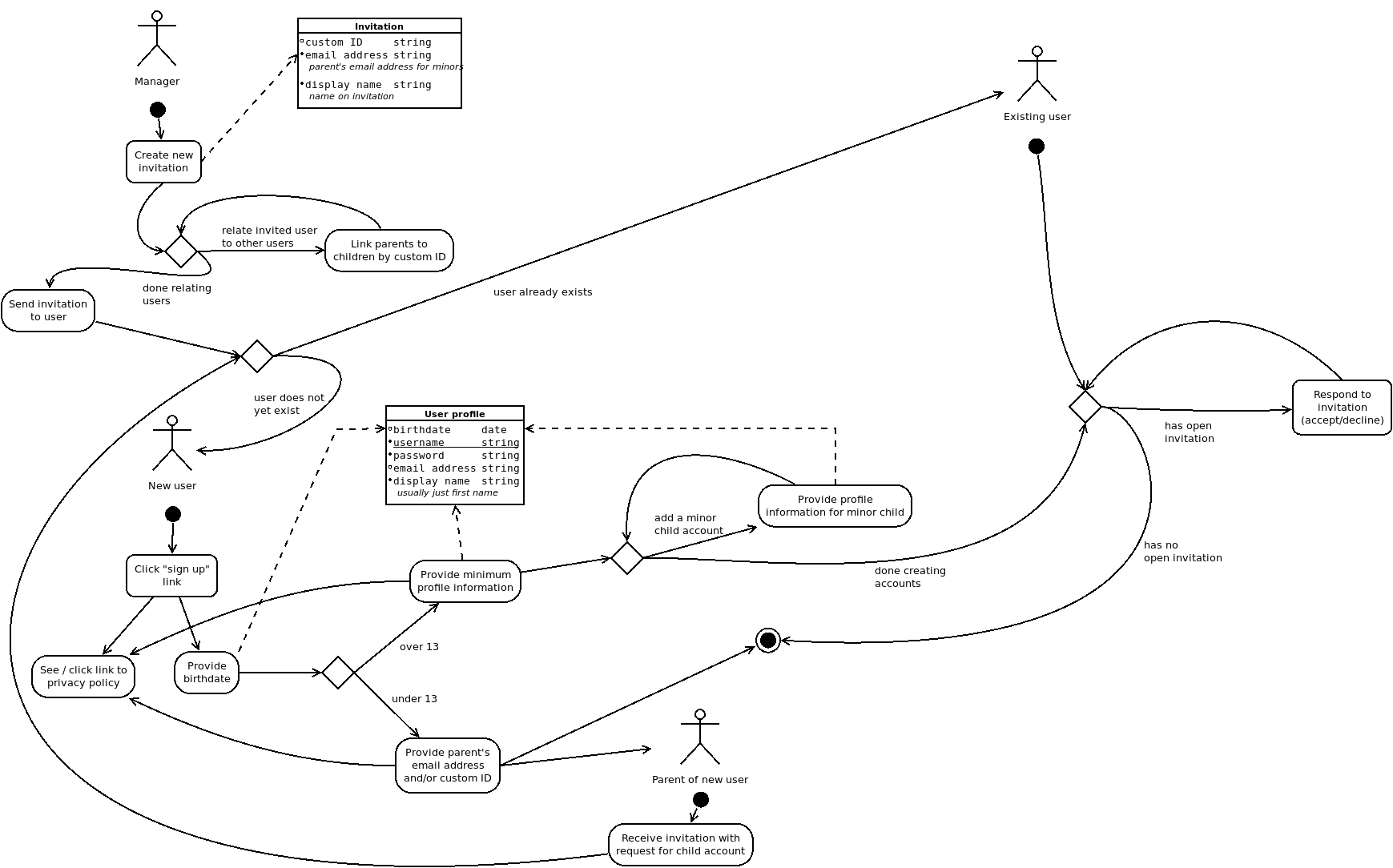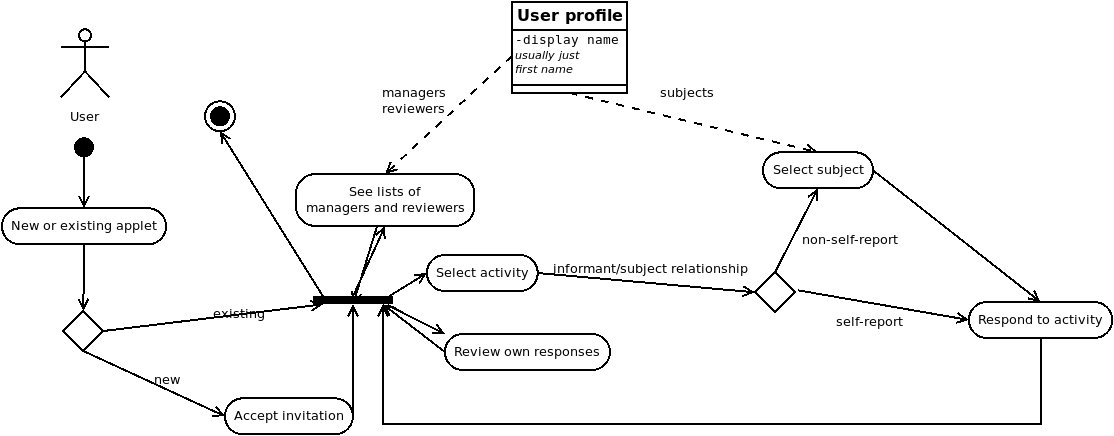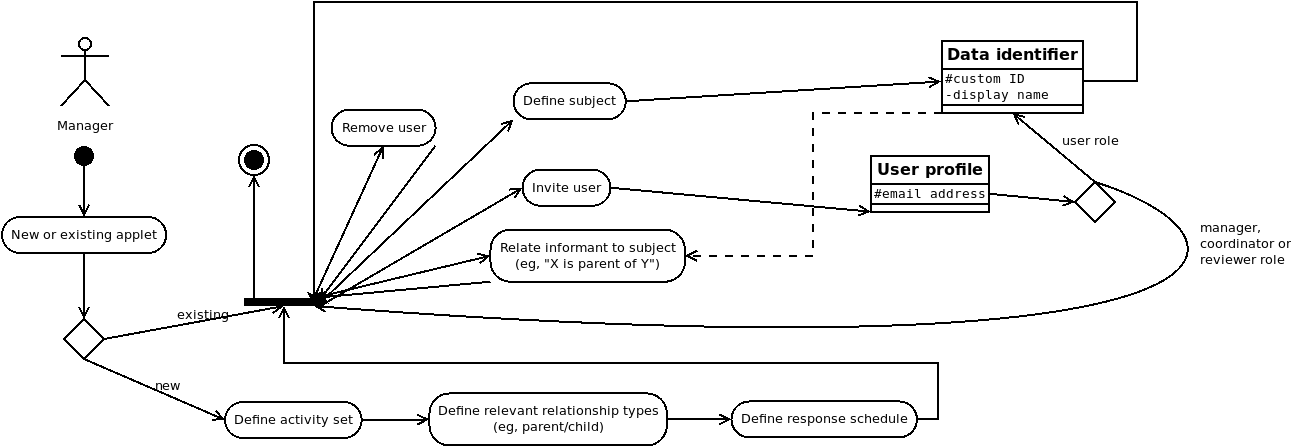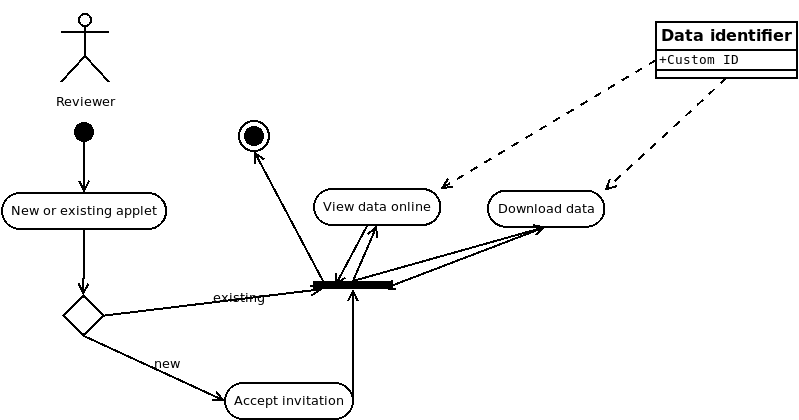Status
activeRevision history
| Name | Date | Reason For Changes | Version |
|---|---|---|---|
|
Arno Klein Jon |
2019-10-18 |
|
|
| Jon Clucas | 2019-10-04‒09 |
|
|
Contents
Open Questions
- Do we want to include more information about managers and/or reviewers to users whose data can be accessed by those individuals? Contact information? Credentials?
Project plan
Why?
What is the problem or value proposition addressed by the project? Why is it being sponsored?
What?
What is the work that will be performed on the project? What are the major products/deliverables?
Who?
Who will be involved and what will be their responsibilities within the project? How will they be organized?
When?
What is the project timeline and when will particularly meaningful points, referred to as milestones, be complete?
Risk management
Competitor analysis
Actors
Roles
Informant
- Responds to activities about self
- Responds to activities about other(s)
- Can see own data
Manager
- Sets up applet
- Invites managers, coordinators, reviewers, informants
- No data access unless also informant and/or reviewer
Coordinator
- Invites informants, coordinators
- No data access unless also informant and/or reviewer
- Cannot invite managers or reviewers unless also a manager
Reviewer
- Can access deidentified data
User Identification
- Per user, a manager or coordinator assigns:
- A custom ID for data reporting
- An email address (age 13+ only)
- Manager invites users to appropriate user groups
-
Manager/coordinator defines relevant relationships between users, (eg, “Parent is parent of Child”). MindLogger automatically populates appropriate fields as defined in initial applet set-up. Subjects need not have accounts unless they are also informants.
- In the app, informants see names from profiles:
- informant’s own name
- names of subjects about whom informant can report
- names of managers who can see / assign / update access & personal information
- names of reviewers who can see / download deidentified data
-
Informants age 13+ set their own names, usernames, passwords, and those of their children 12 and under.
- Data reviewers and downloaders see only custom IDs as identification.
Relationships
"bio:father": "The biological father of a person, also known as the genitor."
"bio:mother": "The biological mother of a person, also known as the genetrix."
"rel:parentOf": "A person who has given birth to or nurtured and raised this person."
Namespaces
bio: "http://vocab.org/bio/#"
rel: "http://vocab.org/relationship/#"
User journeys
New user
Informant
Manager
Coordinator
Reviewer
Editor
Editor role not planned for v1.0. See MindLogger wysiwyg editor panel. MindLogger is intended to use ReproLib-encoded documents, regardless of how those documents are authored.
Scheduling
Data security
- All data encrypted:
- on device
- in transit
- on server
- All data access-controlled
- Only managers can invite reviewers
- Only reviewers can access data other than their own submissions
- Informants can access and delete own data
- Users are not discoverable, ie, managers and coordinators cannot tell if a user already has an account and reviewers cannot tell if a user still has an account
UI
Input types
Information screens
- text
- pictures
- audio
Surveys
- list or table of text and/or images
Slider bars
- smooth
- discrete increments
Free text entry
Audio recording
Camera
Photos
Drawing/tapping
- timestamp saved for every coordinate
User feedback
Bug reports and feature requests
From any MindLogger interface, users of any type should be able to easily navigate to a place where they can report bugs and request features (eg, links to GitHub issues and Git Reports).




